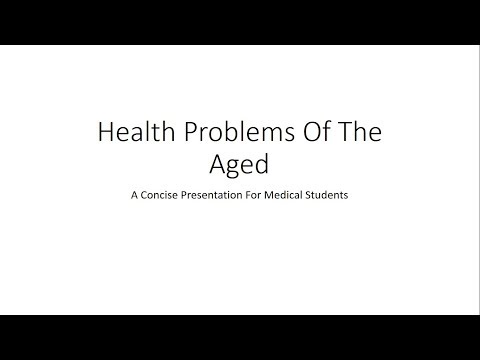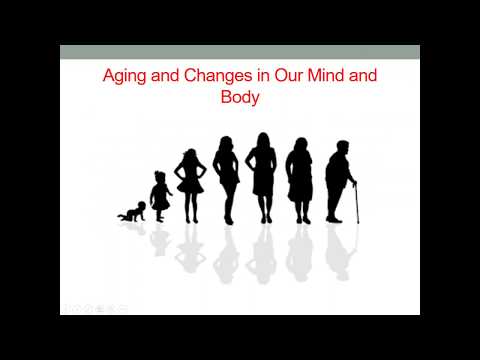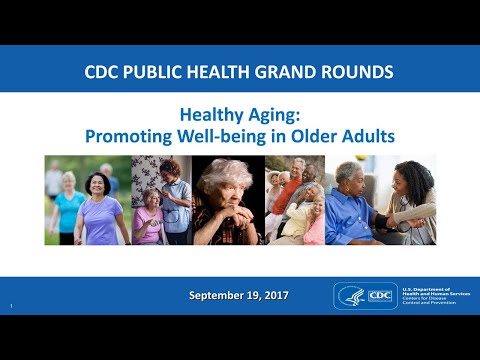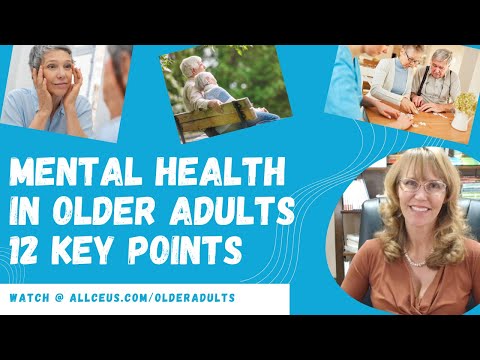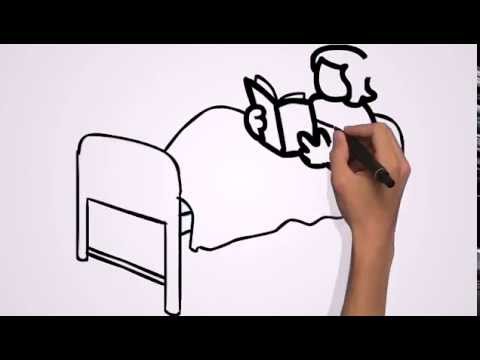Health Concerns for the Elderly
Contents
- The top health concerns for the elderly population.
- How to prevent or mitigate the effects of these health concerns.
- The role of diet and exercise in maintaining elderly health.
- The importance of social interaction and support networks for the elderly.
- The impact of chronic conditions on the elderly population.
- The importance of access to quality healthcare for the elderly.
- The role of technology in improving elderly health outcomes.
- The future of elderly health care in America.
- The global impact of aging populations on health care systems.
- The challenges and opportunities of caring for an aging population.
As we age, our bodies go through many changes. Some of these changes can lead to health concerns. It is important to be aware of these health concerns and take steps to stay healthy.
Checkout this video:
The top health concerns for the elderly population.
As people age, they are more likely to experience health problems. The most common health concerns for the elderly population are:
-Chronic diseases such as heart disease, stroke, cancer, and diabetes
–mental health issues such as depression and anxiety
-Mobility issues that can lead to falls
-Alzheimer’s disease and other forms of dementia
-Osteoporosis and other bone health concerns
How to prevent or mitigate the effects of these health concerns.
There are a number of health concerns that are common among the elderly. These include:
– Falls: Falls are a leading cause of injury among the elderly. They can often be prevented by making sure that the home is well-lit and free of tripping hazards, and by maintaining an active lifestyle to improve strength and balance.
– Dementia: Dementia is a decline in cognitive function that can lead to problems with memory, language, and thinking. It is important to keep the mind active as one ages in order to reduce the risk of dementia. This can be done through activities like reading, doing puzzles, and socializing regularly.
– Chronic diseases: Many chronic diseases become more common with age, such as heart disease, stroke, cancer, and diabetes. These conditions can often be managed through lifestyle changes such as eating a healthy diet and exercising regularly.
– Depression: Depression is a common mental health concern among the elderly. It can be caused by isolation, chronic illness, loss of loved ones, and many other factors. Treatment for depression may include medication, therapy, and support groups.
The role of diet and exercise in maintaining elderly health.
Good nutrition and physical activity are important at any age, but they become even more critical as we get older. The elderly are susceptible to a host of health problems, many of which can be prevented or minimized through a healthy lifestyle.
Poor nutrition is a major contributor to many chronic diseases, including heart disease, stroke, cancer, and diabetes. It can also lead to frailty, falls, and other injuries. Eating a nutritious diet can help the elderly maintain their strength and vitality, and prevent or delay the onset of chronic disease.
Regular exercise is another important aspect of a healthy lifestyle for the elderly. It helps to maintain muscle strength and flexibility, improve balance and coordination, and reduce the risk of falls. Exercise can also help to improve cognitive function and reduce the risk of dementia.
There are many resources available to help the elderly make healthy choices about diet and exercise. Talk to your healthcare provider about what steps you can take to maintain your health as you age.
The elderly population is one of the most vulnerable groups when it comes to health concerns. This is due in part to the fact that as we age, our bodies become more susceptible to disease and illness. But another important factor to consider is the role that social interaction and support networks play in the health of the elderly.
A recent study published in the journal BMC Public Health found that social isolation and loneliness are significant risk factors for a number of health concerns in later life, including cognitive decline, depression, and cardiovascular disease. The study’s authors believe that social interaction and support networks play a “protective” role against these health concerns by providing a sense of belonging, purpose, and self-worth.
The findings of this study highlight the importance of social interaction and support networks for the elderly. If you have an elderly loved one who is isolated or lonely, consider ways to help them connect with others. This could include joining a senior center or community group, participating in regular outings with friends or family, or even just spending time talking on the phone or chatting online. By staying connected, they can enjoy a better quality of life and potentially reduce their risk for serious health problems down the road.
The impact of chronic conditions on the elderly population.
Chronic conditions are defined as those lasting three months or more and are the leading cause of death and disability worldwide. They are also a major driver of healthcare costs, accounting for more than $2 trillion annually in the United States alone.
The elderly population is particularly vulnerable to chronic conditions due to the natural aging process and the higher incidence of comorbidities. Comorbidities are defined as the presence of two or more chronic conditions in an individual. Studies have shown that the risk of developing a chronic condition increases with age, and that the burden of chronic disease is greater in older adults than in any other age group.
There are a number of reasons why chronic conditions have a greater impact on the elderly population. First, older adults are more likely to have multiple chronic conditions, which can compound the effects of each individual condition. Second, many chronic conditions are progressive, meaning they tend to get worse over time. This can lead to a decline in functional status and an increased need for long-term care. Finally, comorbidities can interact with each other in ways that can make them difficult to manage and treat effectively.
The impact of chronic conditions on the elderly population is significant and has important implications for public health. Chronic diseases are a leading cause of morbidity and mortality among older adults, and they impose a substantial burden on our healthcare system. In order to effectively address this issue, we need to focus on prevention and early detection strategies that can help reduce the incidence of chronic disease in this population.
The importance of access to quality healthcare for the elderly.
As people live longer, the number of elderly people is increasing. Along with this increase comes an increased need for healthcare services that are specific to the needs of older adults. Unfortunately, access to quality healthcare can be a challenge for the elderly.
There are a number of reasons why the elderly might have difficulty accessing healthcare. For one, they are more likely to be on a fixed income, which can make affording health insurance and medical care difficult. In addition, many elderly people live in rural areas, where there may not be sufficient access to medical facilities and doctors.
The good news is that there are a number of programs and initiatives in place to help the elderly access quality healthcare. These include programs like Medicaid and Medicare, as well as private health insurance plans that offer discounts for seniors. In addition, many hospitals and clinics offer sliding scale fees based on income, which can help make medical care more affordable.
The role of technology in improving elderly health outcomes.
As our population ages, more and more people are finding themselves in need of care and assistance. This includes not only those who are elderly, but also those with chronic health conditions or disabilities. One of the ways that we can help improve outcomes for these individuals is by making use of technology.
There are a number of ways that technology can be used to improve health outcomes for the elderly. For example, it can be used to help manage chronic conditions, monitor vital signs, and provide reminders for medications or appointments. It can also be used to connect individuals with loved ones or care providers, which can help reduce feelings of isolation and loneliness.
While there are many potential benefits to using technology to improve elderly health outcomes, it is important to keep in mind that there are also some risks associated with its use. For example, if an individual’s health information is not properly secured, it could be accessed by unauthorized individuals. Additionally, some individuals may be reluctant to embrace new technologies or may find them difficult to use.
Despite the potential risks, the use of technology can be a powerful tool for improving elderly health outcomes. When used correctly, it has the potential to improve the quality of life for many older adults.
The future of elderly health care in America.
Elderly health care in America is rapidly changing. New technologies and approaches to care are being developed all the time, and the needs of the elderly population are constantly evolving. This means that the way we provide care for our seniors must constantly adapt as well.
The future of elderly health care in America will be shaped by a number of factors. First, the aging of the Baby Boomer generation will put increasing pressure on the health care system. As this large generation begins to reach retirement age, they will begin to need more medical services and support.
Second, rising health care costs will continue to be a major challenge for elderly Americans. The cost of health care is already a major expense for many families, and it is only expected to increase in the years ahead.
Third, advances in technology will play a key role in shaping the future of elderly health care. New medical technologies and treatments are being developed all the time, and they have the potential to greatly improve the quality of life for seniors.
Fourth, changing demographics will also impact the future of elderly health care. The population of seniors is expected to grow significantly in the coming years, due to both the aging of the Baby Boomer generation and increased life expectancy. This growth will present both challenges and opportunities for those providing care for seniors.
Finally, public policy will play a critical role in shaping the future of elderly health care. Federal and state governments have a major impact on how resources are allocated within the health care system, and they will continue to make decisions that affect senior citizens’ access to care.
The global impact of aging populations on health care systems.
The world is aging. According to the United Nations, the number of people aged 60 or over is projected to grow from 962 million in 2017 to 2.1 billion in 2050. By 2050, one in four people in the world will be over age 60. This increase in the global population of older adults has important Implications for health care systems around the world.
The most common chronic conditions experienced by older adults are hypertension, arthritis, heart disease, stroke, and diabetes. These conditions are often expensive to treat and can lead to disability and reduced quality of life. As the number of older adults with chronic conditions grows, so does the demand on health care systems.
In developed countries, aging populations are already strainIng health care budgets. In the United States, for example, spending on Medicare (the government-funded health insurance program for people aged 65 and over) is projected to increase from 3.7 percent of GDP in 2015 to 5.8 percent by 2050 . In Japan, spending on long-term care for older adults is expected to increase from 1.2 percent of GDP in 2010 to 3.2 percent by 2035 .
The impact of aging populations is not limited to developed countries; it is also a concern in developing countries. A study conducted in China found that the number of disabled elderly people is expected to increase from 24 million in 2010 to 177 million by 2050 . This increase will put strain on families who provide care for their elderly relatives as well as on government resources.
As the world ages, it is important to be aware of the potential impact on health care systems around the globe. The challenges posed by aging populations will require innovative solutions that take into account the needs of both patients and caregivers
The challenges and opportunities of caring for an aging population.
As our population continues to age, more and more people are finding themselves in the position of caring for elderly loved ones. This can be a rewarding experience, but it can also be a challenging one. It’s important to be aware of the unique health concerns that come with aging, so that you can best support your loved one’s health and wellbeing.
Some of the most common health concerns for the elderly include:
-Chronic conditions such as heart disease, hypertension, arthritis, diabetes and cancer
-Mobility issues
–mental health concerns such as depression, anxiety and dementia
-Incontinence
– Falls
There are a number of ways to address these concerns, from making sure your loved one is getting enough exercise to helping them maintain social connections. It’s also important to stay up to date on their medications and treatments, and to be aware of any changes in their health.
Caring for an aging loved one can be both rewarding and challenging. By being aware of the unique health concerns that come with aging, you can help make sure your loved one stays healthy and happy.

